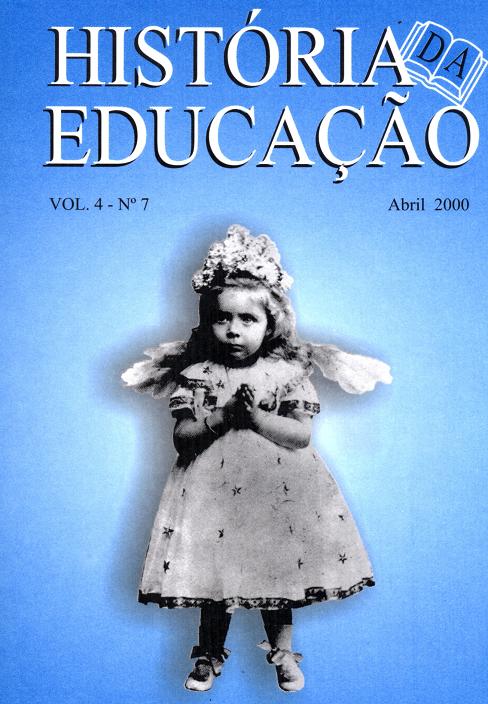Um barão brasileiro no congresso internacional de Buenos Aires: as idéias pedagógicas de Abílio César Borges, barão de Macahubas
Abstract
Partindo da intervenção do Barão de Macahubas em 2 de maio de 1882 na 9° seção do Congresso Pedagógico Internacional de Buenos Aires, este trabalho situa a vida e a obra de Abílio César Borges no contexto do Império do Brasil explicitando suas idéias pedagógicas com destaque para os seguintes temas: a) concepção de homem e de infância e aprendizagem; b) o papel da escola e sua organização; c) os conteúdos do ensino; d) os métodos de ensino; e) a proeminência da educação moral. À guisa de conclusão busca-se esclarecer o significado dessas idéias pedagógicas explicitando as controvérsias que elas suscitaram, o caráter moderno da pedagogia preconizada a serviço, porém, de uma educação tradicional e, finalmente, o lugar de Abílio César Borges, o Barão de Macahubas, na história e na historiografia da educação brasileira. Pedagogo autodidata, Abílio César Borges era médico de formação, tendo desenvolvido suas idéias educacionais praticando-as nos colégios que fundou e se servindo das experiências de outros países, do que dão testemunho as três viagens que fez à Europa para observar o funcionamento das escolas, adquirir materiais didáticos e contratar professores.Palavras-chave: história da educação, barão de Macahubas, congresso pedagógico.
Abstract
Grounded on Baron of Macahubas intervention in the 9th section of International Pedagogic Congress of Buenos Aires, on May 2, 1882, this paper places the life and works of Abílio César Borges in the context of Brazil' s Empire. It describes his pedagogic ideas, wilh emphasis to the following issues: a) conception of man and of childhood and learning; b) school role and its organization; c) teaching contents; d) teaching methods; e) the prominence of moral education. What is pursued as conclusion is to enlighten the meaning of these pedagogic ideas, bringing to Iight: i) the controversies they raised; li) the modern character of his pedagogy, although it was meant to meet the interests of a traditional education, and iii) lhe place of Abílio César Borges, Baron of Macahubas, in the history and the historiography of Brazilian education. Abílio César Borges was a self-taught pedagogue and a graduated physician who developed his educational ideas by practicing in the schools he founded, and using experiences from other countries, as testemonied by his three trips to Europe to observe schools operation and to hire teachers.
Keywords: history of education, barão de Macahubas, pedagogic congress.
Downloads
Downloads
Published
How to Cite
Issue
Section
License
História da Educação utilizes as a base to transfer right to the CreativeCOmmons BY license (creativecommons.org) for open access periodicals Open ArchivesIniciative (OAI), greenroad category.
Open access means making it freely available on the Internet, so that the users can read, download, copy, distribute, print, research or reference the full text of the documents, process them for indexation, utilize them as input data for software programs, or use them for any other legal purpose, without a financial, legal or technical barrier.
a) Authors keep the copyrights and grant the right of first publication to the journal, with the work simuoltaneously licenced under the Creative Commons Attribution License, which enables sharing the text with acknowlegement of authorship and initial publication in this journal.
b) Authors have permission to take up additional contracts separately for non-exclusive distribution of the version of the work published in this journal (e.g. publishing in an institutional repository or as a book chapter) with acknowledgment of authorship and initial publication in this jounral.
c) Authors have permission and are encouraged to publish and distribute their work online (e.g., in institutional repositories or on their personal page) to any point before or during the publication process, since this may generate productive changes, and also increase the impact and citation of the work published.










